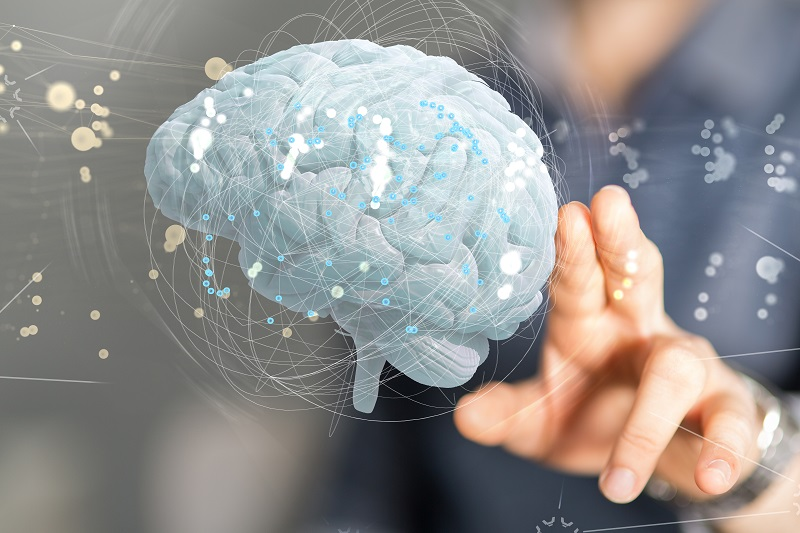ATD Blog
Get Stickier: Hacking Your Brain to Become a Better Learner
Tue Jul 26 2022

There are several things all L&D leaders grapple with. One is: How do we demonstrate that the learning solutions we provide to our employees or customers make an impact? As an example, consider the hurdle of gathering results on enhanced performance and results that affect organizational goals and objectives. This conundrum frequently leads us to focus on the way we evaluate and measure skills, the analyses we conduct, and the way we share data stories. These actions are extremely important, but there is another question we might want to use to further the impact learning experiences can have on organizational performance: How might we create learning experiences that will stick faster, easier, and longer?
The science of learning research has made tremendous leaps in how we understand the brain and learning. Learning science is one of the capabilities in the Professional Capability domain of the ATD’s Talent Development Capability Model™. Organizations with impactful learning processes use the key principles from this interdisciplinary field to be more innovative in their methodologies and delivery of learning. Over the years—even back as far as twenty years ago with Ron Gross and his book Peak Learning: How to Create Your Own Lifelong Education Program for Personal Enlightenment and Professional Success—numerous thought leaders such as Britt Andreatta, Barbara Oakley, and Benedict Carey have provided “how to” information for practitioners to use in designing learning that is stickier.
Many organizations have conducted their own research and implemented a plethora of ways to advance stickiness in their learning experiences. More recently, some of these organizations have been sharing their research, implementation practices, and lessons learned in conferences and workshops. Still others are writing about them. In the ATD Forum book, Leading the Learning Function: Tools and Techniques for Organizational Impact, Leanne Drennan, Casey Gerhart, and Joan McKernan of IBM wrote a chapter entitled “Leveraging Neuroscience in Learning Design.” They provide examples of tools such as graphic organizers to leverage neural networks and practices such as spacing learning over time rather than condensing it into one session.
Also, in the Forum’s book, Dana Alan Koch, Michelle M. Webb, and Tanya Gilson of Accenture wrote a chapter called “Business Impact Thought Learning: Research and Innovation,” which discussed how they have been working to continually “get better at getting better” by mobilizing learning science to inform programs and decisions. In writing, they used a science-based brain-friendly technique, storytelling, to describe how they conduct research on these innovative learning processes. This includes using cross-functional teams and collaborating with external research partners and other innovation teams.
The Accenture team began by researching what makes learning stick, so they could improve the design and delivery of their materials and content. Their thought process went from “Are we creating courses that deliver sticky learning?” to “How do we help learners be more effective at learning—how do we help them be ‘sticky learners?’” The first step was conducting in-depth research into how the brain learns, which resulted in a report of more than 100 pages with hundreds of resource links. To make the research practical, consumable, and fun to have an impact on their employees, they converted this research into bite-sized “Brain Hack” videos. Brain Hacks teach simple techniques to help learners learn, consistent with the biology of their brains. The learning teams throughout the organization embraced theses Brain Hacks and now regularly embed them into the learning programs they design.
In the last couple of years, the entire talent development profession has benefited from Accenture’s research through these Brain Hacks being published on YouTube. Allison Horn, who was chief talent officer at the time, had a vision of impacting hundreds of thousands, if not millions of people, both in and out of Accenture with the decision to make these research-based learning assets public. With more than 300,000 views, her vision is on its way to reality.
Based on their research, the Accenture team knew that learning is a physical process in which new knowledge is represented by new connections in the brain. Memory is a huge network of linked cells in our brain. The brain is a powerful machine that functions to take in new information (intake), encode or make sense of this information, and determine where to store it—then, when the information is needed, it must retrieve it.
With each of these three functions (intake, encode, and retrieve), there are many barriers. For example, when we are taking in information, there might be many distractions, we might not know why we need the information, or there just might be too much information. Barriers to encoding might be limited prior knowledge, limited time, or simply being overwhelmed with the amount of information. Barriers to retrieval might include lack of practice, ineffective intake or encoding, or cramming. In Make it Stick: The Science of Successful Learning, authors Peter C. Brown, Henry L. Roediger, and Mark A. McDaniel state: “The speed to retrieve from long-term memory depends on context, recent use, and vividness of the cues.”
While many of the Brain Hacks are to help learners overcome the barriers to intake, encoding, or retrieval, the Accenture team’s research also included hacks for the four things that are most important to accelerate a heathy and happy brain—nutrition, sleep, stress, and exercise.
As learning professionals enabling employees to reskill and upskill to meet the challenges of constantly changing performance requirements, helping to make employees “sticky” should be a priority. With demanding schedules being a given, these fun and research-based Brain Hacks to build into our practice is a huge gift from Accenture that everyone can leverage. To start getting stickier, you might want to reflect on this blog by asking three simple questions or get more details on the process by checking out the video Why Brain Hacks Work.
